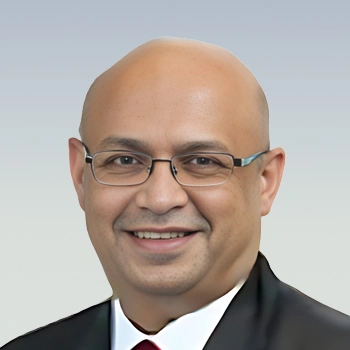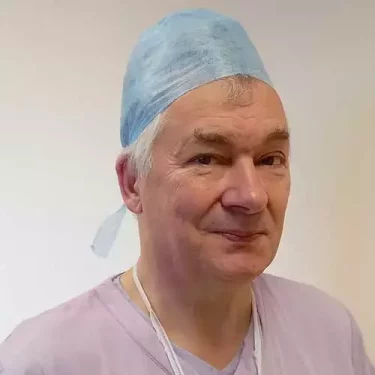Anaesthesia
Our skilled specialists provide personalised care to ensure your comfort during procedures. Start your journey with confidence today.
Our skilled specialists provide personalised care to ensure your comfort during procedures. Start your journey with confidence today.
At Practice Plus Group, we prioritise your comfort and safety during medical procedures with our expert anaesthesia practices. Our highly skilled anaesthetists, based in our leading hospitals and surgical centres, deliver personalised care tailored to your needs. Whether you’re undergoing surgery or a diagnostic procedure, we use advanced techniques to ensure you feel at ease, with a focus on minimising discomfort and supporting a smooth recovery.
Our team works closely with you and your medical providers to determine the best anaesthesia approach, whether it’s general, regional, or local, based on your procedure and health requirements. With continuous monitoring and a compassionate approach, we’re here to make your experience as seamless and reassuring as possible. At Practice Plus Group, your well-being is at the heart of everything we do.
Explore our anaesthesia services today and discover how we can support you through your healthcare journey. With state-of-the-art facilities and a commitment to excellence, Practice Plus Group is your trusted partner for safe, high-quality care.
Our specialist anaesthetists are here to support you through every stage of your treatment. Working across our trusted hospitals and surgical centres, our consultants in anaesthesia provide high-quality, personalised support to ensure a smooth and comfortable experience.
We work with you and your healthcare team to determine the best approach, whether that’s general, local or regional anaesthesia. Using the latest techniques and continuous monitoring, our goal is to provide essential pain relief and help you recover quickly and safely.
All our anaesthetists have specialist training and are experienced at providing professional care. Use the carousel below to meet our experts ready to make your comfort their priority.

Anaesthesia and pre-assessment
Practices at:

Anaesthesia and pre-assessment
Practices at:

Anaesthesia and pre-assessment
Practices at:

Anaesthesia and pre-assessment
Practices at:

Anaesthesia and pre-assessment
Practices at:

Anaesthesia and pre-assessment
Practices at:

Anaesthesia and pre-assessment
Practices at:

Anaesthesia and pre-assessment
Practices at:

Anaesthesia and pre-assessment
Practices at:

Anaesthesia and pre-assessment
Practices at:

Anaesthesia and pre-assessment
Practices at:

Anaesthesia and pre-assessment
Practices at:

Anaesthesia and pre-assessment
Practices at:

Anaesthesia and pre-assessment
Practices at:

Anaesthesia and pre-assessment
Practices at:

Anaesthesia and pre-assessment
Practices at:

Anaesthesia and pre-assessment
Practices at:

Anaesthesia and pre-assessment
Practices at:

Anaesthesia and pre-assessment
Practices at:

Anaesthesia and pre-assessment
Practices at:

Anaesthesia and pre-assessment
Practices at:

Anaesthesia and pre-assessment
Practices at:

Anaesthesia and pre-assessment
Practices at:

Anaesthesia and pre-assessment
Practices at:

Anaesthesia and pre-assessment
Practices at:

Anaesthesia and pre-assessment
Practices at:

Anaesthesia and pre-assessment
Practices at:

Anaesthesia and pre-assessment
Practices at:

Anaesthesia and pre-assessment
Practices at:

Anaesthesia and pre-assessment
Practices at:
Anaesthesia is the use of medicines to prevent pain and discomfort during medical procedures or surgery. It can make you fully unconscious (general anaesthesia) or numb just a specific part of your body (local or regional anaesthesia).
Anaesthetics block pain signals between your nerves and your brain. Depending on the type, it can affect a small area or your entire body. It also helps with muscle relaxation and keeps you calm or asleep.
Anaesthesia can be administered in several ways:
Your anaesthetist will explain the best option for your treatment.

There are three different types of anaesthesia, depending on the procedure you are having.
Local anaesthetic numbs a small part of the body, making it ideal for minor procedures such as mole removal or dental work. You're awake and alert but feel no pain.
Regional anaesthetic blocks pain in a larger area, such as an arm or the lower half of your body. For example, if you are having joint surgery.
General anaesthetic puts you into a controlled, temporary state of unconsciousness. It’s typically used for major surgery such as joint replacement or abdominal procedures. You won’t feel or remember anything during the procedure.
Modern anaesthesia is very safe, but like all medical procedures, there are some risks.
These include:
Your consultant anaesthetist will assess your risks and explain everything clearly before your procedure.
Common side effects include:
These are usually short-lived and managed with care.
Anaesthesia is included in most of our procedure packages.
Find all of our prices for private surgery here.
So, we’ve covered the essentials of anaesthesia, now it’s time to explore what happens during consultation and treatment.
You’ll attend a pre-op assessment where your consultant will:
The initial consultation is a crucial step to ensure your safety and tailor the anaesthesia plan to you. You may be asked to stop certain medications or avoid eating and drinking before surgery.
You’ll be welcomed by your care team. Your anaesthetist will administer the anaesthetic and monitor you throughout the procedure.
If you have had a general anaesthetic, you’ll wake up in a recovery room where staff monitor your vitals. You may feel sleepy or groggy. Most people recover within a few hours, though effects can last a little longer for some.
During your consultation, your consultant will recommend the most effective and safest option for your specific needs.
During hip replacement surgery, general or spinal anaesthetic is typically administered.
Spinal anaesthesia with sedation is common when it comes to knee replacement surgery.
Most cataract procedures use local anaesthesia with light sedation.
Weight loss surgery is typically performed under general anaesthesia, with a tailored plan for higher BMI patients.
Vascular surgery may require general or regional anaesthesia but depends on the type of procedure you’re having.
Local, regional, or general anaesthesia may be used depending on the hernia’s size and position.
This kind of surgery is usually performed under local anaesthesia for quick recovery.
At Practice Plus Group, we prioritise your comfort and safety during medical procedures with our expert anaesthesia practices. Our highly skilled anaesthetists, based in our leading hospitals and surgical centres, deliver personalised care tailored to your needs. Whether you’re undergoing surgery or a diagnostic procedure, we use advanced techniques to ensure you feel at ease, with a focus on minimising discomfort and supporting a smooth recovery.
Our team works closely with you and your medical providers to determine the best anaesthesia approach, whether it’s general, regional, or local, based on your procedure and health requirements. With continuous monitoring and a compassionate approach, we’re here to make your experience as seamless and reassuring as possible. At Practice Plus Group, your well-being is at the heart of everything we do.
Not quite found the information you're looking for? Our dedicated anaesthesia FAQs can help!
Local, regional, and general anaesthesia are all commonly used, depending on the type and length of the procedure.
Local anaesthesia numbs a small area. General anaesthesia makes you completely unconscious during the procedure.
Yes, anaesthesia is very safe. Our consultants assess your health and monitor you throughout your care.
They monitor your vital signs and use specific equipment to track your consciousness and depth of anaesthesia.
Most people describe it as drifting off quickly and waking up without any memory of the procedure.
Usually not, your consultant will advise how many hours to fast before your procedure.
It depends on the type. General anaesthesia usually lasts for the duration of the procedure. You’ll begin to wake up shortly after it ends.
The anaesthetist stops the medication and monitors you as you wake up naturally.
Most people feel alert within a few hours, but some effects can linger for a day or two.
It can, especially after surgery. Staying hydrated and moving around can help.
We’ll match you with one of our expert consultants, but do let us know if you have a preference or request.